STATEHOUSE REPORT | ISSUE 20.32 | AUG. 6, 2021
BIG STORY: Vaccination remains best defense against COVID-19
NEWS BRIEFS: Sanford memoir to be released Aug. 24
COMMENTARY, Brack: Henhouse politics must change on redistricting
LOWCOUNTRY, Ariail: Abstract drawing
SPOTLIGHT: The Felkel Group
OUR TURN: Without excessive-force law, people will continue to die
FEEDBACK: Are members of the General Assembly just plain callous?
MYSTERY PHOTO: Maritime mystery
Vaccination remains best defense against COVID-19
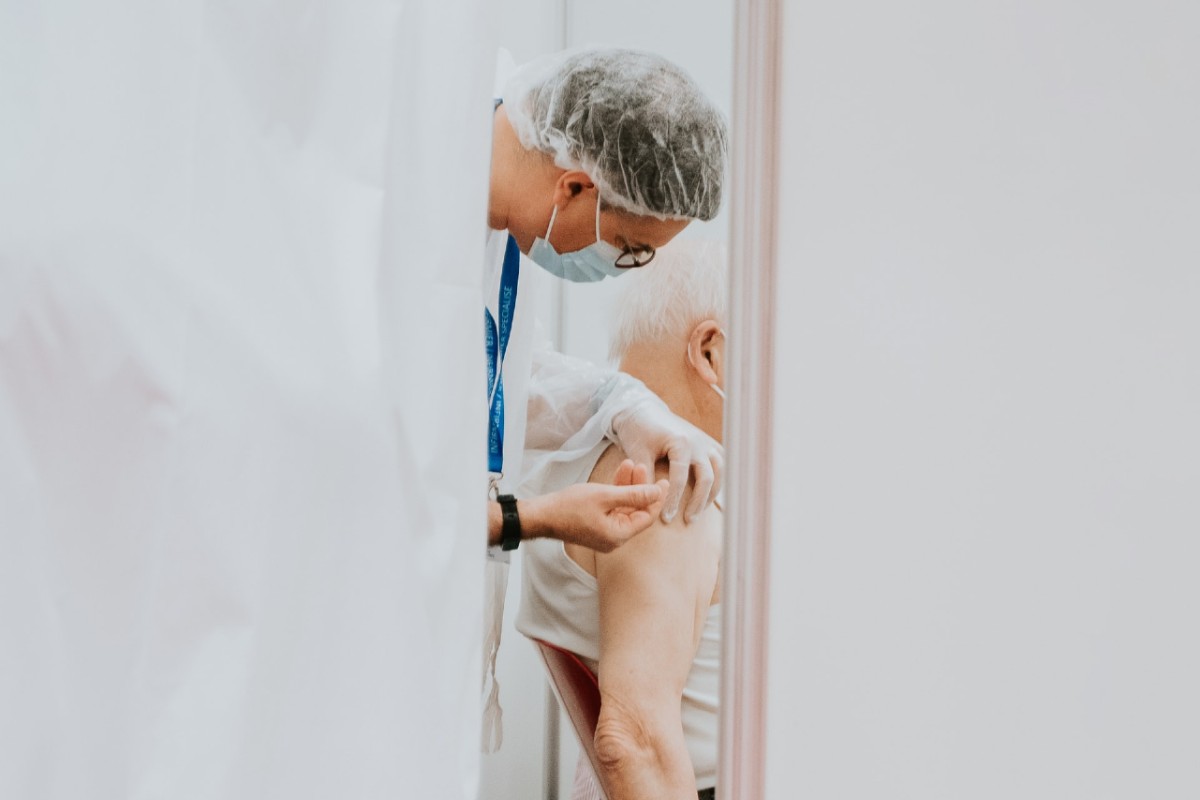
Staff reports | Despite guidelines and mandates to curb the spread of the COVID-19 virus and its variants, state officials say the best defense remains vaccination. But the state’s vaccination rate remains comparatively low.
“Complete vaccination is the number one way to stifle the impact of the delta variant,” a spokesperson at the state Department of Health and Environmental Control (DHEC) said this week. “Low statewide vaccination rates allow the virus to continue to mutate and new, more significant variants to spread.
“Just like vaccines have been overwhelmingly successful in saving populations from polio, tetanus, hepatitis, measles, whooping cough, the flu and many other diseases, we have life-saving vaccines that protect us from this new disease, including its variants, widely available.”
In fact, Charleston Mayor John Tecklenburg has described the current resurgence of the virus as an “optional pandemic” — one that the public can “opt out of” by getting vaccinated.
Dr. Patrick Cawley, CEO of MUSC Health, recently said he couldn’t stress enough the safety and importance of getting vaccinated.
“You look at almost every health system in the country, the most vaccinated group, in the high 90 percent, is almost always doctors,” he said. “Physicians are trained to evaluate large amounts of clinical data and studies … they’ve looked at themselves and have decided to get vaccinated.”
Cawley denounced common “fables” he hears from those who show severe vaccine hesitancy, such as the speed with which they were developed and that the methods used by vaccines are experimental and unknown.
“The fable is that the vaccine is not safe and it’s not effective, and that is absolutely not true.”
Situation becoming dire, again
Across the nation, the health environment is already dire. Reports nationwide detail stories of those hospitalized with severe symptoms asking nurses and doctors for the vaccine only to be told it’s too late. One hospital in Louisiana is facing overwhelming influxes of patients, according to a CNN report, leading to ward closures and a skyrocketing ICU population.
DHEC’s statewide hospital bed capacity tracker shows 8,537 of 11,165 inpatient beds in 89 hospitals were occupied as of July 27. Of those occupations, 453 were COVID-related, and 29.36 percent of those inpatients were in the ICU.
MUSC’s Epidemiology Intelligence Project said while hospitals were still well-equipped to handle the surge, climbing numbers will eventually threaten area hospitals. As of Aug. 2, 74 percent of MUSC inpatient hospital beds were occupied, and 72 percent of ICU beds in Charleston were occupied.
And even though hospitals are not facing extreme circumstances here yet, the rates of infection are still growing.
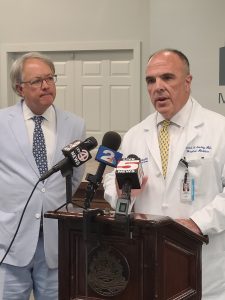
“We need to look at two things: you need to look at the number of actual infections that have happened, and those do remain low, but then you really need to look at the leading indicator … the rate of change,” Cawley said. “The rate of change has had a very, very, very steep uptick in the last three or four weeks. It’s just a matter of time before the total number of cases will start increasing.”
Who is hospitalized: The unvaccinated
There is one key difference between this new wave of hospitalizations compared to last year’s — the ages are getting lower.
“Almost everybody we’re seeing in the hospitals are people that are unvaccinated, first of all,” Cawley said. “So if you look at who’s not vaccinated, it’s very, very little for the older age groups — it’s the middle age groups, and it’s trending lower.”
Extra precautions advised to protect communities
The rapid spread of more infectious variants is prompting health officials to double-down on safety precautions that were thought to have run their course.
New guidance from the federal Centers for Disease Control and Prevention are reminiscent of 2020 warnings, advising indoor masking, even for fully vaccinated individuals. This is because while fully vaccinated people are at low risk of infection themselves, they are still capable of transmitting the disease to others.
Earlier this week, Columbia Mayor Steve Benjamin declared a state of emergency due to rising COVID-19 rates. The order, which will be on the city council agenda for a vote on Tuesday, requires students, faculty, staff and visitors to schools to wear masks to stop the spread. The order is expected to pit the city against the state in a legal battle over a state budget proviso that banned a mask mandate in local schools.
Cawley said while it is possible to prevent a second lockdown in communities across the state, he doesn’t think now is the time to rule it out.
“It’s hard to predict these things and the impact they have,” he said. “At this point, there’s significantly more vaccines than demand. Even if everybody that has not been vaccinated wanted to get vaccinated tomorrow, we could easily handle that.”
A version of this story by Skyler Baldwin appeared earlier this week in the Charleston City Paper. Have a comment? Send to feedback@statehousereport.com
Sanford memoir to be released Aug. 24
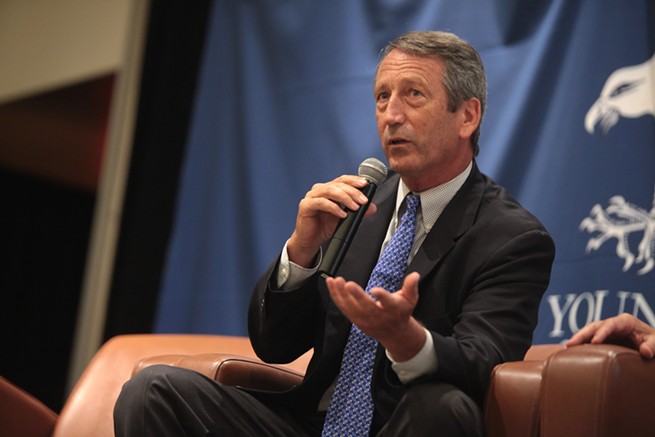
By Sam Spence | Mark Sanford, the former governor and congressman who weathered scandal only to be undone by President Donald Trump, will release his memoir Aug. 24.
Sanford’s political career spanned four presidents and played out in three acts, from an initial election to Congress to serving as South Carolina governor to an improbable second stint in the U.S. House. He also ran for president briefly in the 2020 cycle. The memoir charts each winding phase, fittingly affixed with the 17-word title, Two Roads Diverged: A Second Chance for the Republican Party, the Conservative Movement, the Nation — and Ourselves.
 The book promises Sanford’s side of “the complex story of his all-too-public personal life while making a plea for conservatives to return to the Party of Lincoln and abandoning the Cult of Trump,” according to a press release.
The book promises Sanford’s side of “the complex story of his all-too-public personal life while making a plea for conservatives to return to the Party of Lincoln and abandoning the Cult of Trump,” according to a press release.
Sanford was once poised to lead the national conservative movement as governor during the early Obama administration, until a 2009 overseas love affair put his name in tabloid-esque headlines and triggered a laborious forgiveness campaign. After finishing his term in office, Sanford mounted a comeback with a quirky 2013 congressional campaign to retake his former seat in Congress. But when Donald Trump endorsed Republican Katie Arrington, then a state representative, Sanford lost the primary and was back on the sidelines.
Scott English, Sanford’s longtime aide in Columbia and Washington, said despite his old boss’ continued “owning” of his misdeeds, the book still doesn’t quite connect to the reason why it might be difficult for it to find an audience.
“I don’t think he’s really put it to rest. That continues to make him a problematic messenger,” he told the City Paper. “There was no human element to it.”
“It goes back to the Mark Sanford standard that he set for me and he should set for himself: Your ideas are only as good as your ability to get people to follow you,” he said. “My question is: Who’s following him?”
Sam Spence is editor of the Charleston City Paper, where this story first appeared today.
In other recent headlines:
State lawmakers to visit to talk, listen on redistricting. House and Senate committee members will each visit once over the next six weeks to hear from voters as they prepare to redraw political districts in every corner of South Carolina. Updated data from the 2020 census is expected to be delivered to state leaders by mid-August, with new population figures impacting where district lines will fall until the next census in 2030.
Columbia senator sues after state attorney general’s anti-mask mandate. S.C. Sen. Dick Harpootlian, D-Columbia, has asked the state Supreme Court for a ruling on whether public colleges can require masks for unvaccinated students on campus after a letter by the S.C. Attorney General Alan Wilson. More coverage.
Company with obscene name gets federal loan. This story has local prim and proper tongues wagging.
Tropical weather pattern brewing. There’s a 60 percent chance of a tropical wave off the African coast developing into a tropical depression that may influence weather here, the National Hurricane Center says.
Abstract drawing
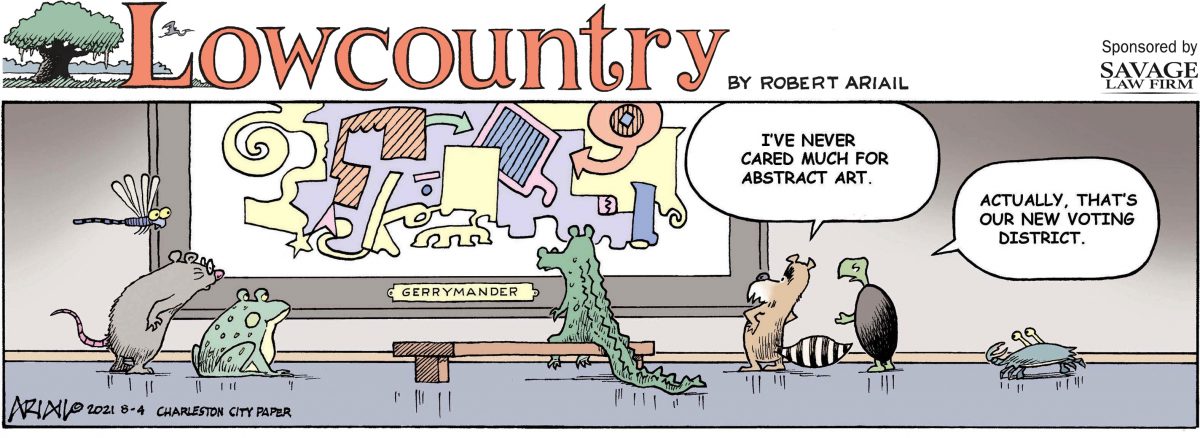
Cartoonist Robert Ariail always has an interesting take on what’s going on in South Carolina. His weekly “Lowcountry” strip is originally drawn for our sister publication, the Charleston City Paper. Love the cartoon? Hate it? What do you think: feedback@statehousereport.com. Check out the Best of Charleston 2021.
Henhouse politics must change on redistricting
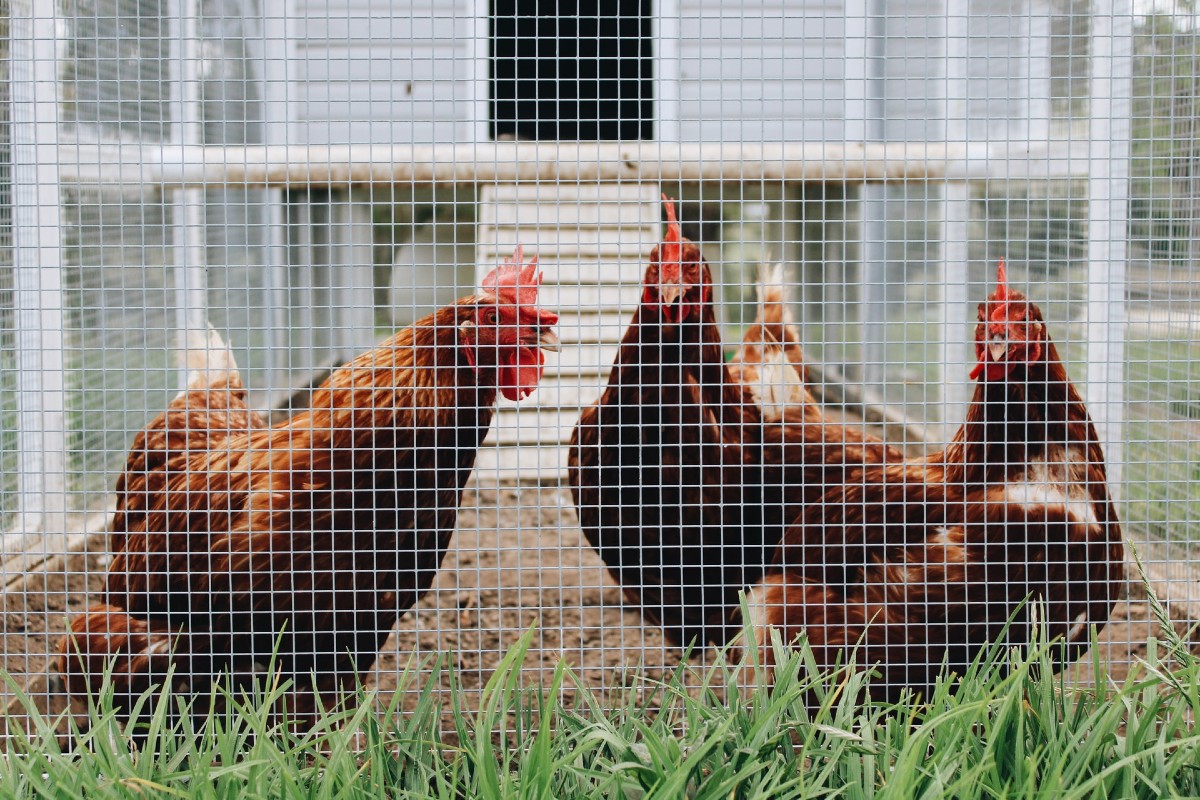
By Andy Brack, editor and publisher | When the fox guards the henhouse, the fox pretty much can do as it pleases.
 That’s what is bothersome about state lawmakers redrawing the lines of the districts they represent. Despite what’s ahead — months of tedious meetings, court challenges and complicated processes — the results are already rigged to favor the very people who are managing the whole shooting match. They don’t want the chickens in control.
That’s what is bothersome about state lawmakers redrawing the lines of the districts they represent. Despite what’s ahead — months of tedious meetings, court challenges and complicated processes — the results are already rigged to favor the very people who are managing the whole shooting match. They don’t want the chickens in control.
What really needs to happen is the opposite of incumbency protection. To produce a fair reapportionment as envisioned by the U.S. Constitution every 10 years, the chickens need to be in charge through a redistricting commission that is independent of the legislature. But if you believe that’s going to happen anytime soon, let me sell you a seat on a rocketship.
So with a nod to the state’s past three cozy efforts on legislative redistricting, let’s just say we’re wary of what’s surely coming — backroom deals, nods and winks among incumbents to protect what they’ve got so they can win re-election.
It’s understandable — who wants to give up power? But it’s not really completely democratic or fair, particularly when you realize how elections for seats in the state Senate and House are mostly uncompetitive. A Statehouse Report analysis of the 2018 House elections showed, for example, that two thirds of races had no competitive general election as 42 Republicans, mostly from the Upstate, and 28 Democrats faced no challengers that November.
“Of the 44 remaining November races, only 10 had margins of victory of fewer than 20 points, meaning they were somewhat competitive,” we wrote in 2018.
In other words, in 10 of 124 House elections in 2018, the selection of the House winner wasn’t preordained in just 10 of 124 elections. Why? Because of the way the lines are drawn to keep Republicans or Democrats in control in each particular district. These kinds of shenanigans have been going on for years.
“The state has deteriorated to the point that the Republicans can pretty much get away with what they want to do,” said longtime civil rights activist Joe Darby of Charleston. “They aren’t being held accountable. All they want to do is stay in power and throw out some red meat legislation to their base sometimes. It’s pitiful.”
But Darby, a pastor who is a former officer with the state NAACP, noted the GOP isn’t acting much differently than when Democrats controlled the Statehouse before a redistricting around 1994 that led to the Republican ascendancy to power.
“At one time, the Democratic Party was doing the things the Republican Party is now doing,” he said. “They managed to maintain their majority in South Carolina by gerrymandering” the lines.
There’s no real incentive for the foxes to change the process.
“Nothing in South Carolina has ever changed by the goodness or decency of the people who have led the state willingly,” he said, noting it took federal intervention to end slavery, force Reconstruction and push states to make voting and civil rights changes.
“Anything that has brought balance and equity to this state has come from federal intervention,” Darby said.
Unfortunately in the coming 2021 redistricting, federal intervention is even more limited because of a U.S. Supreme Court case a few years back that essentially OKed partisan gerrymandering. In the past, states with a history of racial discrimination in voting — mostly Southern states — had to get a federal sign-off from the U.S. Justice Department that proposed new districts didn’t blatantly break laws. Those protections diminished when Justice Department oversight fizzled.
Furthermore, anyone who does bring a lawsuit that proposed districts are unfair has a new challenge this go-round — they have to prove inequities. In the past, the people who drew the lines had to prove districts were fair. But because the burden of proof has shifted, the foxes have even more of an upper hand.
So as new Census numbers come out soon and legislators tour the state to listen to citizen concerns about new lines, ask them to take out their earplugs and do the right thing. And demand changes to the process to provide for an independent redistricting commission.
Andy Brack is editor and publisher of Statehouse Report. Have a comment? Send to: feedback@statehousereport.com.
The Felkel Group
 The public spiritedness of our underwriters allows us to bring Statehouse Report to you at no cost. This week in the underwriter spotlight is The Felkel Group, a battle-tested public affairs and business development firm that assists corporations, associations and not-for-profits that are serious about their long-term success. The Felkel Group solves problems, crafts and delivers messages, helps organizations to manage crisis, and uses a wealth and breadth of valuable relationships to help to seal deals.
The public spiritedness of our underwriters allows us to bring Statehouse Report to you at no cost. This week in the underwriter spotlight is The Felkel Group, a battle-tested public affairs and business development firm that assists corporations, associations and not-for-profits that are serious about their long-term success. The Felkel Group solves problems, crafts and delivers messages, helps organizations to manage crisis, and uses a wealth and breadth of valuable relationships to help to seal deals.
The Felkel Group is also home to an outstanding advocacy tool called The Rap Index, a powerful intelligence tool that employs sophisticated computer modeling and profiling techniques to help organizations find their most effective advocates. To learn more about The Felkel Group and its Rap Index, go to: http://www.felkelgroup.com.
Without excessive-force law, people will continue to die

Editor’s Note: This editorial appeared earlier this week in the Charleston City Paper.
AUG. 4, 2021 | South Carolina law allows law enforcement to shock, gas, restrain and kill people with impunity as long as they’re following their training. That’s what our community learned last week when Ninth Circuit Solicitor Scarlett Wilson delivered the news that the Charleston County deputies involved with Jamal Sutherland’s January death would face no state charges.
This is not acceptable. Our state legislature must act swiftly and decisively to enact proposed excessive-force statutes to help keep people safe during interactions with law enforcement officers.
It’s no secret that police often get the benefit of the doubt, letting departments avoid full accountability in the interest of law and order at any cost. But even Wilson laments that without an excessive-force law on the books, her hands are tied in some cases.
“We are one of only eight states in the country where the legislature has declined to enact any special or specific criteria for officer-involved force. That omission affects the state’s ability to hold officers accountable for excessive uses of force,” Wilson wrote in her explanation on whether to bring charges in Sutherland’s death.
This is not about rooting out a few bad cops. It’s about a top-down culture change for law enforcement. From Ben Tillman’s Red Shirts in the 1870s to the charged environment at the Al Cannon Detention Center, fear and violence have long been used as intimidation tactics by paramilitary police to protect the white political ruling class. Deputies needlessly deployed deadly force on Jamal Sutherland without legal consequences because they were allowed to — they always have been.
So again, a South Carolina family is left without a path to justice under the laws of their own state. And again, we’re left to rely on the federal prosecutors to swoop in and bail out solicitors and the lawmakers who continue to enable our state’s primitive justice system. Remember: Michael Slager is in prison on federal civil rights violations in the killing of Walter Scott — Wilson’s 2016 prosecution of the former North Charleston cop resulted in a hung jury.
Thankfully, two Charleston-area lawmakers have already filed a bill to make sure officers who exploit their power have to answer to a judge in state court.
“What happened to Jamal Sutherland was unacceptable and outrageous,” S.C. Rep. J.A. Moore (D-Hanahan) said May 13, soon after videos showing Sutherland’s killing were released. “There must be accountability, and we must take steps to make sure this never happens again.”
With Rep. Marvin Pendarvis, another young Charleston-area Democrat, Moore has also filed bills to ensure mental health patients in crisis receive medical treatment, not a mugshot.
South Carolina can no longer be indifferent to its deadly, unjust criminal justice system. Get serious and pass these bills into law.
- Send your letters or comments to: feedback@statehousereport.com
Are members of the General Assembly just plain callous?
To the editor:
![]() For self-professed pro-lifers, anti-mask provisos surely aren’t consistent.
For self-professed pro-lifers, anti-mask provisos surely aren’t consistent.
And now children are subject to long COVID-from-Delta-possibilities for lifelong disabilities, including early death (now from the virus, or later from life-limiting after-effects). And the CDC says “The Delta variant is more transmissible than the viruses that cause MERS, SARS, Ebola, the common cold, the seasonal flu and smallpox, and it is as contagious as chickenpox.” Unless every S.C. parent is a virologist or immunologist, they truly don’t know better about their children’s needs regarding masking.
Are the members of S.C.’s General Assembly that callous? Are they willing to sacrifice children — the future of the Palmetto State — for their own whims? If they are, then they are OK with collateral damage to advance their own reelection. When we are all dead and gone, historians will look at this time as darker than the times after the Spanish Flu in 1918.
— Name withheld upon request, Columbia, S.C.
Go to court over anti-masking effort
To the editor:
Hopefully there is a district superintendent willing to defy the Governor on masking. Let’s get this to the court.
— David K. R ogers, York, S.C.
Maritime mystery

Where and what is shown in this photo? Send your guess to feedback@statehousereport.com — and remember to include your name, home city and contact information.
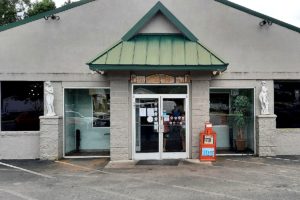 Last week’s mystery, “Classical statues,” showed a pair of classical figures framing the door of the Original House of Pizza on Calhoun Drive in Orangeburg. Thanks to Columbia’s Elizabeth Jones for the photo.
Last week’s mystery, “Classical statues,” showed a pair of classical figures framing the door of the Original House of Pizza on Calhoun Drive in Orangeburg. Thanks to Columbia’s Elizabeth Jones for the photo.
And congratulations to these readers who knew where the picture was (or who figured it out, mostly because of the orange newspaper box): Will Bradley of Las Vegas, Nevada; Allan Peel of San Antonio, Texas; Don Clark of Hartsville; David Lupo of Mount Pleasant; Henry Eldridge of Tega Cay; Kevin Mertens of Greenville; George Graf of Palmyra, Va.; Faith Line of Anderson; Frank Bouknight of Summerville; and Jay Altman of Columbia.
Peel shared: “This restaurant offers both Italian and Greek items on its menu, which explains, in part, the reason for the Greek artifacts and sculptures that adorn the entrance to the establishment. It is a family-owned and -operated no-frills restaurant that offers dine-in, take-out, and delivery, and catering services. … The original restaurant employed 20 employees and could seat up to 55 patrons. Today it employs 40 people and has been expanded to seat up to 130 diners.”
- Send us a mystery. If you have a photo that you believe will stump readers, send it along (but make sure to tell us what it is because it may stump us too!) Send to: feedback@statehousereport.com and mark it as a photo submission. Thanks.
ORDER NOW: Copies are in Lowcountry-area bookstores now, but if you can’t swing by, you can order a copy online today.
ABOUT STATEHOUSE REPORT
Statehouse Report, founded in 2001 as a weekly legislative forecast that informs readers about what is going to happen in South Carolina politics and policy, is provided to you at no charge every Friday.
- Editor and publisher: Andy Brack, 843.670.3996
Donate today
We’re proud to offer Statehouse Report for free. For more than a dozen years, we’ve been the go-to place for insightful independent policy and political news and views in the Palmetto State. And we love it as much as you do.
But now, we can use your help. If you’ve been thinking of contributing to Statehouse Report over the years, now would be a great time to contribute as we deal with the crisis. In advance, thank you.
Buy the book
Now you can get a copy of editor and publisher Andy Brack’s We Can Do Better, South Carolina! ($14.99) as a paperback or as a Kindle book ($7.99). . The book of essays offers incisive commentaries by editor and publisher Andy Brack on the American South, the common good, vexing problems for the Palmetto State and interesting South Carolina leaders.
More
- Mailing address: Send inquiries by mail to: P.O. Box 21942, Charleston, SC 29413
- Subscriptions are free: Click to subscribe.
- We hope you’ll keep receiving the great news and information from Statehouse Report, but if you need to unsubscribe, go to the bottom of the weekly email issue and follow the instructions.
- Read our sister publications: Charleston City Paper (every Wednesday) | Charleston Currents (every Monday).
- © 2021, Statehouse Report, a publication of City Paper Publishing, LLC. All rights reserved.



